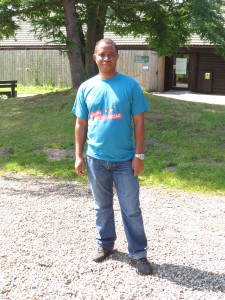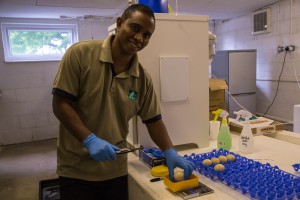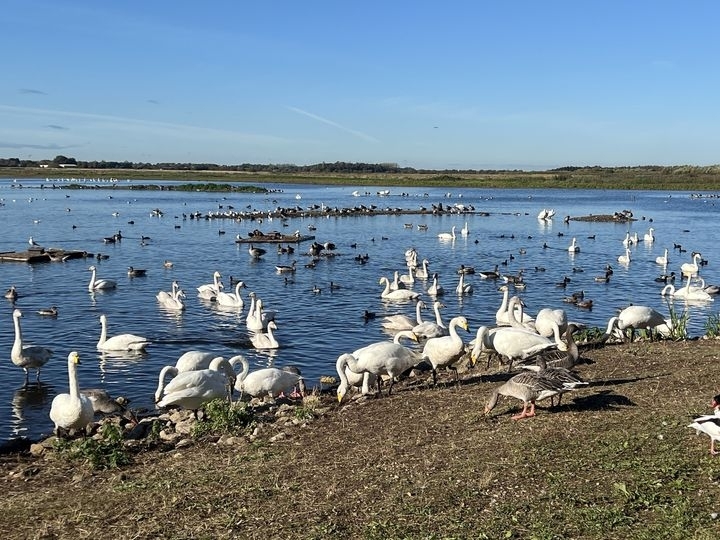Helping to save the world's rarest bird

The man charged with daily care of the world’s rarest bird, the Madagascar pochard, is at WWT Martin Mere Wetland Centre this month for intensive training with some of WWT and the world’s top aviculturists.
Malagasy born and bred, Floriot Randrianarimangason started working in Madagascar looking after the world’s rarest tortoise – the ploughshare – but in 2009 he switched to looking after the Madagascar pochards and now manages the special pochard conservation breeding facility.
Floriot heads a team of three, the only wildfowl aviculturists working in Madagascar. With just 50 birds in their care, and breeding just 2–3 broods a year until the release programme is underway, their opportunity to learn through experience is always going to be limited.
 So Floriot is flying to the UK to work alongside aviculturists at WWT Martin Mere Wetland Centre, who care for hundreds of waterbirds and are hatching tens of chicks each day at this time of year.
So Floriot is flying to the UK to work alongside aviculturists at WWT Martin Mere Wetland Centre, who care for hundreds of waterbirds and are hatching tens of chicks each day at this time of year.
Floriot said ahead of his visit:
“This will be very valuable time for me. I’ve met many of the people I’ll be working alongside before in Madagascar where they’ve helped set up the pochard breeding facility. This time I’ll be seeing how things are done in the UK where you have decades of experience in breeding wildfowl for conservation.
“Though the situation in Madagascar is different in some ways – the climate, food and materials available –this experience will help me to adapt these methods to ensure a safe future for the Madagascar pochard.”
Floriot’s month long visit will be intensive, covering four locations across the British Isles in just five weeks. He’ll work alongside the avicultural teams each day and spend time at the end of each to reflect on applying the new experiences to Madagascar and the pochards.
WWT aviculturist, Graham Clarkson, along with other WWT staff members who have taken their skills to Madagascar to help with the project, are part of the team restoring a healthy population of Madagascar pochard to the wild.
Graham said:
“Floriot already manages an incredible feat, caring for the world’s rarest bird in very challenging circumstances. No one else in Madagascar is doing what he does, so for support and advice, he relies on contacting us by phone. This month he’ll be rolling his sleeves up, just as he would back home, and we’ll immerse him in more duck-related activity than he dreamt was possible, covering every aspect of their care.”
The Madagascar pochard was thought to be extinct until a tiny pocket of 22 survivors was discovered on a single lake in 2006. That figure has hardly risen because every year the ducklings die through starvation. The lake's conditions don’t suit them. But we’ve found a different lake that could give the species hope, and we need local people's help to create an environment that works for both wildlife and people. You can help too:Find out all about Mission Madagascar



